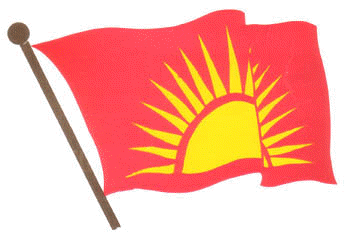Liberation Tigers Political Head
S. P. Thamilchelvan, in an Interview to TamilNet
Sunday, said the passive stance adopted by the
International Community, which he characterized
as �unconstructive engagement,� is encouraging
Colombo to pursue its power-centric politics and
aggressive military agenda. The International
Community, while making statements that a
military solution is not possible, is either
unable to, or unwilling to, exert its formidable
muscle to force Colombo out of the current
military path, despite the patience shown by the
Tigers, he said.
"We would never, under any circumstance, engage
militarily and simultaneously enter talks," Mr.
Thamilchelvan said. "The process towards a
negotiated settlement can only take place in an
environment conducive to talks. The LTTE has
explicitly stated the conditions necessary to
create such environment,� Tiger political head
said. The most basic of these conditions were
agreed upon and laid down in the
Cease Fire Agreement of February 2002.
Over the last few years the LTTE leadership has
been patient and tolerant in sustaining
possibilities for Colombo to commit to, and to
implement the basic clauses of the CFA
agreement.
"Our tolerance was aimed at providing space for
Colombo to re-engage in the process in a
meaningful way."We had repeatedly respected the
call by the International Community
to be flexible," Thamilchelvan said.
The LTTE Political Head referred to Geneva Talks
I in February 2006 and Geneva Talks II in
October 2006."Within the 8-months between the
Geneva-I talks and Geneva-II, Colombo had
transformed the proxy war into a full-scale war,"
Thamilchelvan said.
It is after the Geneva - I talks, when Colombo
promised to the International Community to
disarm the paramilitaries, as stipulated in the
CFA clause 1.8, paramilitary opened the
so-called "political offices," in Batticaloa,
Colombo, Amparai and Trincomalee. This was
clearly a counter-tactic to resist the mounting
pressure from International community, which had
confronted the Government with credible evidence
of paramilitary collusion with the Sri Lankan
military.
The paramilitaries even claimed responsibility
for carrying out attacks on LTTE posts from
their offices.
"Assassinations, killings of civilians and
forced disappearances by the Sri Lankan military
and paramilitary became widespread. Humanitarian
agencies were systematically harassed, blocked
and threatened with killings and intimidation.
An economic blockade was clamped in the east,
and the access routes were closed. Aerial
bombardment and shelling targeted civilians,
forcing displaced people on foot from place to
place with the aim of evicting people from our
administrative areas in the East.
"Even the civilian and medical refuges were
attacked, disregarding the International Law of
Armed Conflict," Thamilchelvan said.
While the International Community urged the Sri
Lankan political leaders to work towards a
radical re-configuration of polity with
�dramatic political changes,� desist from
reneging from the special arrangements
supporting the merger of NorthEast, and that a
military solution was not possible, Colombo was
allowed to pursue exactly the opposite. Colombo
continued to placate the International Community
with the appointment of a new All Party
Conference, and other committees for
investigating killings, and embarked on measures
to gain political advantage within the Southern
polity by signing MoUs with other parties.
In the process, Colombo by clever use of its
politicized judiciary, rejected the concept of
Tamil homeland by nullifying the 18-year merger
of Northern and Eastern Province, the
�International treaty� architected by India.
In this backdrop, Tamil people find little
comfort in the statements and expression of
concerns released by the International
Community, as Colombo continues its military
agenda that has depopulated areas historically
inhabited by Tamils, and has brought enormous
suffering to the Tamils in the east.
Tamil people increasingly view with skepticism
the approach by International Community towards
the two protoganists in the Sri Lanka conflict.
They see the approach as unfairly biased against
the Liberation Tigers who the Tamils see as the
only credible bulwark to safeguard the rights
and dignity of Tamil people who have a long
history of political struggle for
self-determination.
|
"To us
all towns are one, all men our kin. |
| Home | Whats New | Trans State Nation | One World | Unfolding Consciousness | Comments | Search |

